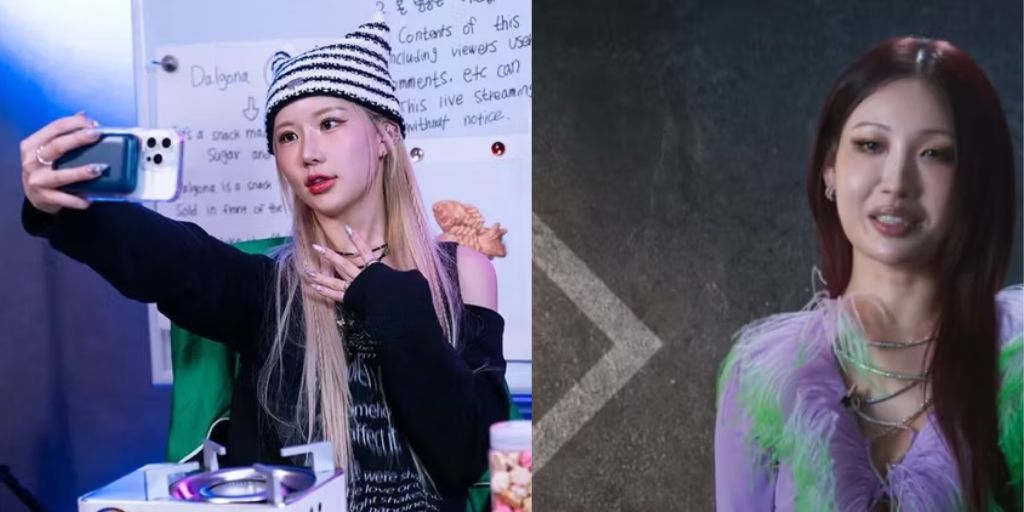Reality TV often aims to capture real-life elements in ways that audiences can relate to, usually through dramatic experiments and surprising premises. This genre shows various aspects of life, from societal functions to the struggles of dating, using unique formats to discuss the complexities of contemporary living.
While many reality TV shows have found success, Netflix’s new program, The Influencer, distinguishes itself from the rest. Produced by Lee Jae-seok, this Korean show seeks to identify the “best influencer” among a group of 77 online celebrities and content creators.
The contestants are put through a series of startling challenges, with their progress in the competition determined by how effectively they can attract and maintain an audience.
The show’s bold and unfiltered approach sets it apart as one of the most enlightening reality TV programs in recent times. The challenges presented are not just surprising but often quite offensive, pushing contestants to perform demeaning tasks in their quest for the grand prize.
This approach is designed to reveal the harsh truths about influencer culture and what it means to earn money based on others’ perceptions. The Influencer offers an unvarnished look at modern society and the realities of the digital world, achieving a level of insight that is rare in reality television.
A Show That Challenges Perceptions
At first glance, The Influencer might seem like just another reality TV offering from Netflix. The marketing focuses heavily on the social media personalities participating in the show, which can lead viewers to expect a light-hearted experience.
However, the show begins with a thought-provoking question: why did you choose to watch this program? This opening challenge prompts viewers to reflect on the influence of digital media and how it shaped their decision to tune in.
This unsettling start effectively sets the tone for the series, preparing viewers for the intense and often uncomfortable content that follows.
The show kicks off with contestants meeting each other and learning that their “worth” will be evaluated based on their follower counts, which can number in the millions. They are then required to give each other “Likes” and “Dislikes” based on first impressions, a familiar concept from social media but rarely experienced in person.
This initial task highlights the impact of online reactions and how different they are when faced face-to-face. This is just the beginning of the intense challenges.
Contestants are later required to engage in activities such as begging their followers to remain online during live streams or even selling themselves as products to win a substantial cash prize.
These tasks are not only difficult but often distressing, underscoring the show’s central message about the struggles of gaining and maintaining attention in the digital age.
The Reality of Being ‘The Influencer’
The Influencer provides a strikingly accurate portrayal of the tough realities faced by influencers today. Many people underestimate the challenges of maintaining an online following.
While there are perks to being an influencer, relying on the ever-changing preferences of an online audience for income can be a precarious situation.

Influencers are often required to view themselves as products, carefully crafting their public image to appeal to internet users, even if it does not reflect their true selves. The show demonstrates this struggle clearly, showing that while some influencers manage to gain fame by being authentic, selling oneself is inherently challenging.
The show highlights how people can easily forget that influencers are real individuals with their own struggles and emotions.
The series also brings to light the emotional toll that comes with online fame. Famous TikToker sia_jiwoo discusses her experience with the harsh criticism she faces online, reflecting the reality of dealing with public dislike.
Beauty YouTuber Risabae also shows her distress when asked to convince her loyal followers to stay engaged in the competition. The show’s “self-auction” challenge, where contestants must sell themselves to each other, is particularly striking. Many contestants face deep despair when they realize that no one is interested in what they are offering.
Is The Influencer a Positive Addition?
Determining the positive impact of The Influencer is complex. While the show’s challenges are apt reflections of the modern influencer culture, subjecting participants to such extreme scenarios might only add more negativity to the genre.
Despite the discomfort and harsh experiences presented, the show offers a clear and honest depiction of online culture and the toxic dynamics that often accompany it. By pushing boundaries, the show reveals the true nature of the digital world and the pressures it places on individuals.
While it may be uncomfortable to watch, The Influencer provides a valuable, albeit unflinching, look at the culture shaped by social media. The Influencer is available to stream on Netflix in the U.S.





